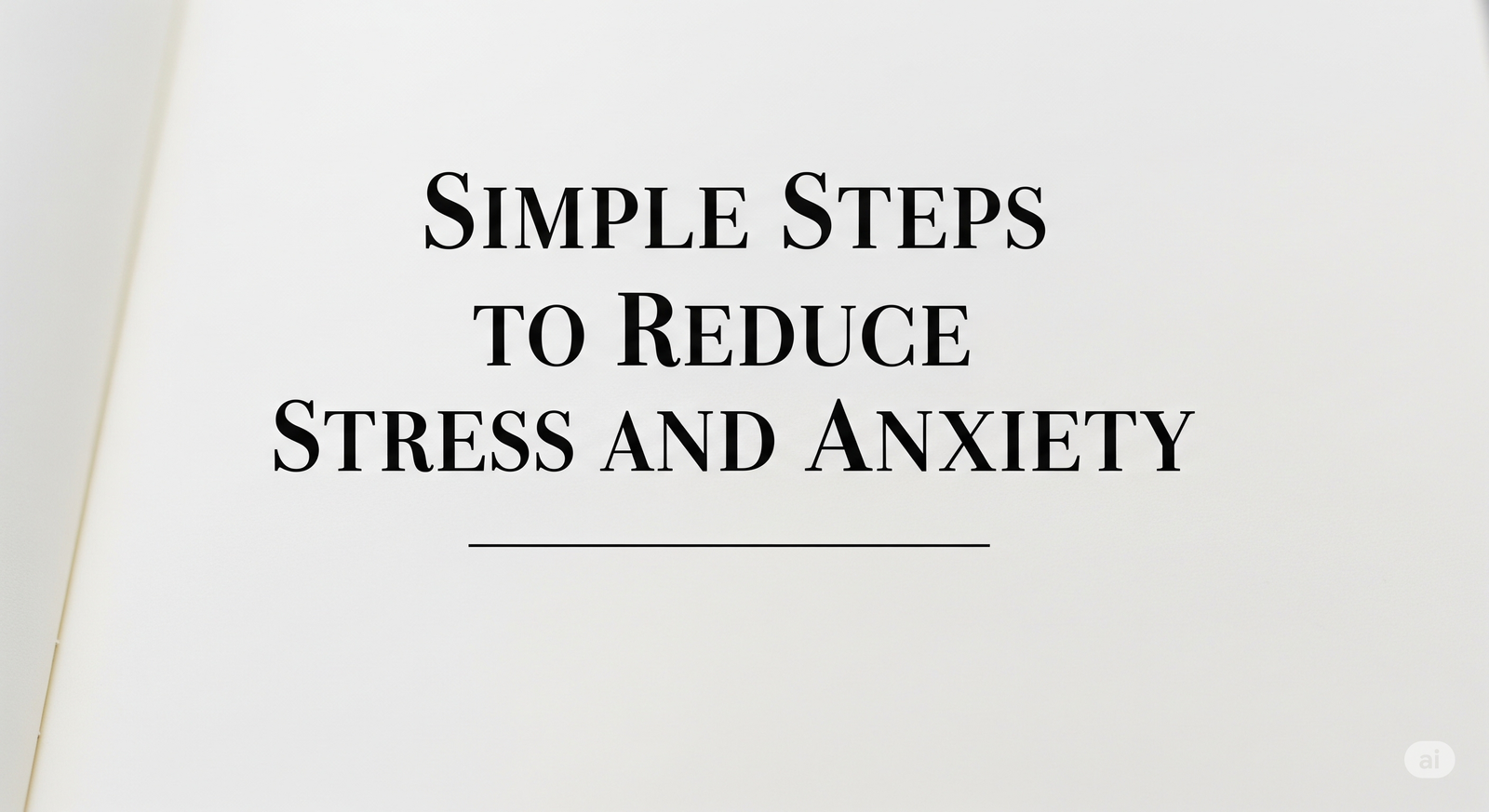In today’s fast-paced digital world, stress and anxiety have quietly become daily companions for millions. But as we step further into 2025, a major lifestyle shift is taking place — people are prioritising mindful living like never before. It’s not just a trend anymore, but a way to protect our mental health and lead happier, more fulfilled lives.
Whether you’re a busy professional, a student, or a stay-at-home parent, finding peace in your everyday life has never been more important. If you’re feeling overwhelmed, burnt out, or constantly anxious, here are simple and practical steps to help you embrace mindful living and regain balance in your life.
1. Start Your Day Without Screens
The first few minutes after waking up can set the tone for your entire day. Instead of checking emails or social media as soon as you open your eyes, take 5–10 minutes to breathe deeply, stretch, or sit quietly. This small morning habit helps reduce mental clutter and prepares you for a calmer day.
✅ Tip: Keep your phone in another room or use a traditional alarm clock to avoid temptation.
2. Practice 5-Minute Meditation
Meditation is no longer reserved for monks or yoga enthusiasts. In 2025, apps like Headspace, Calm, and Insight Timer make it super easy for anyone to start meditating—even for just 5 minutes a day. Consistent meditation can lower your cortisol levels (the stress hormone) and improve emotional regulation.
✅ Tip: Try guided meditations if you’re a beginner — they’re easy to follow and effective.
3. Declutter Your Environment
A messy home or workspace often reflects and fuels a messy mind. Decluttering isn’t just about throwing things away; it’s about creating space for clarity. A clean and organised environment boosts your focus, reduces overwhelm, and promotes peace.
✅ Tip: Use the “one-minute rule” — if it takes less than a minute to do, do it immediately.
4. Digital Detox: Limit Social Media
Social media has its benefits, but overuse can increase anxiety and reduce self-esteem. In 2025, many people are setting healthy screen-time boundaries to protect their mental space.
✅ Tip: Try a “tech-free hour” every evening or keep Sundays social-media-free.
5. Breathe Intentionally
When we’re stressed, our breathing becomes shallow and quick. Deep, intentional breathing helps activate the body’s relaxation response. Just a few minutes of focused breathing can calm your nervous system.
✅ Tip: Try the 4-7-8 technique — inhale for 4 seconds, hold for 7, exhale for 8.
6. Gratitude Journaling
Taking time to write down just 3 things you’re grateful for every day can shift your mindset from stress to abundance. Gratitude helps rewire your brain to focus on the positive, making you more resilient during tough times.
✅ Tip: Keep your journal beside your bed and make it a part of your bedtime routine.
7. Move Your Body Mindfully
Exercise is a known stress reliever, but mindful movement like yoga, tai chi, or even a slow walk in nature can do wonders for your mental health. It’s not just about burning calories—it’s about connecting your mind and body.
✅ Tip: Schedule 20–30 minutes daily for mindful movement that you truly enjoy.
8. Practice Saying “No”
Many people feel stressed because they overcommit. Saying “yes” to everything can lead to burnout. Mindful living means learning to honour your time, energy, and boundaries.
✅ Tip: Before agreeing to something, pause and ask yourself: “Will this nourish me or drain me?”
9. Eat with Intention
In 2025, mindful eating is a growing lifestyle choice. Instead of multitasking while eating, take time to savour each bite. Pay attention to flavours, textures, and how food makes you feel. This reduces binge eating and improves digestion.
✅ Tip: Keep phones and TVs off during meals to stay fully present.
10. Connect Authentically
Genuine human connection is one of the most effective ways to reduce anxiety. Talk to a friend, spend time with family, or join a local group that shares your interests. Real-life interactions release oxytocin, the “love hormone,” which naturally calms the mind.
✅ Tip: Make a habit of checking in with someone you care about every day — even if it’s just a 5-minute chat.
Why Mindful Living Matters More Than Ever in 2025
With AI, constant notifications, global uncertainty, and an “always-on” culture, our brains are constantly overloaded. That’s why mindful living in 2025 isn’t a luxury — it’s a necessity. It empowers us to slow down, stay present, and live intentionally.
You don’t need to overhaul your life overnight. Begin with just one or two of the steps above. Over time, you’ll notice how much calmer, happier, and more in control you feel.
Stress and anxiety might be part of modern life, but they don’t have to control you. Mindful living in 2025 is all about choosing you — your peace, your balance, your happiness.
Start small. Start today. Your mind will thank you.


Giao diện website của nhà cái chính là điểm cộng lớn đối với các bet thủ lần đầu truy cập. nhà cái 888slot Trang chủ có sự kết hợp hài hoà giữa 2 tone màu đỏ – đen vô cùng bắt mắt tạo nên vẻ đẹp sang trọng, đẳng cấp. Ngoài ra, các bố cục website cũng được sắp xếp rất logic để người mới dễ dàng thao tác. TONY12-19
Thankyou for helping out, good information.